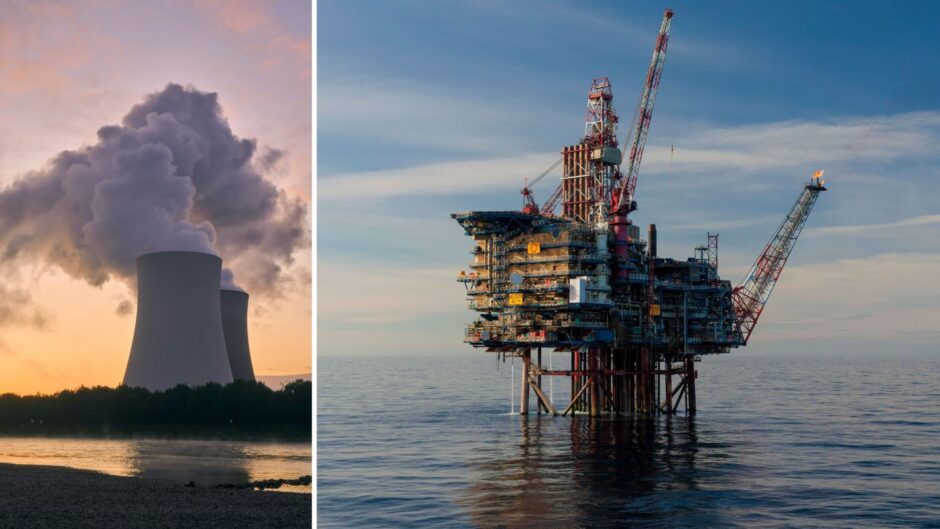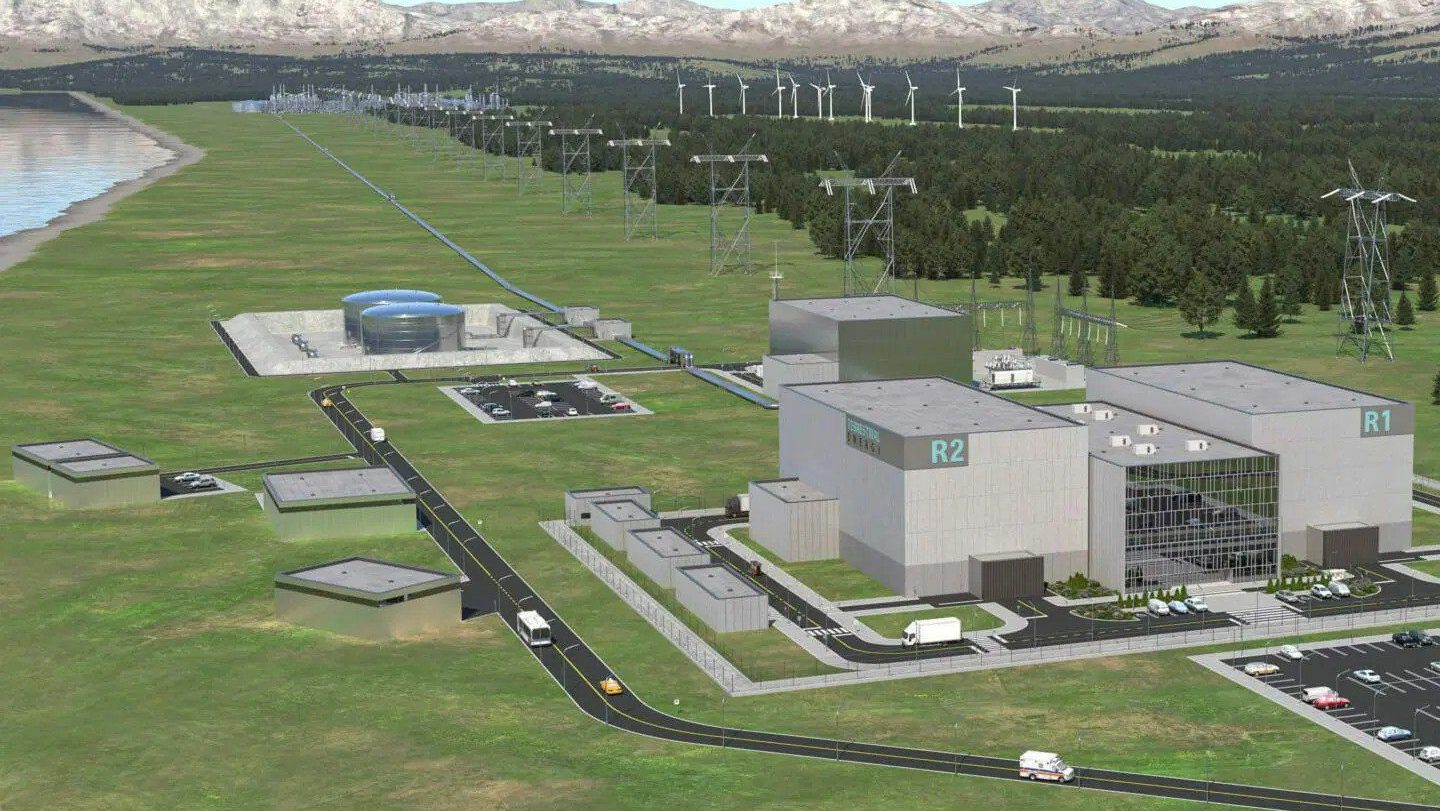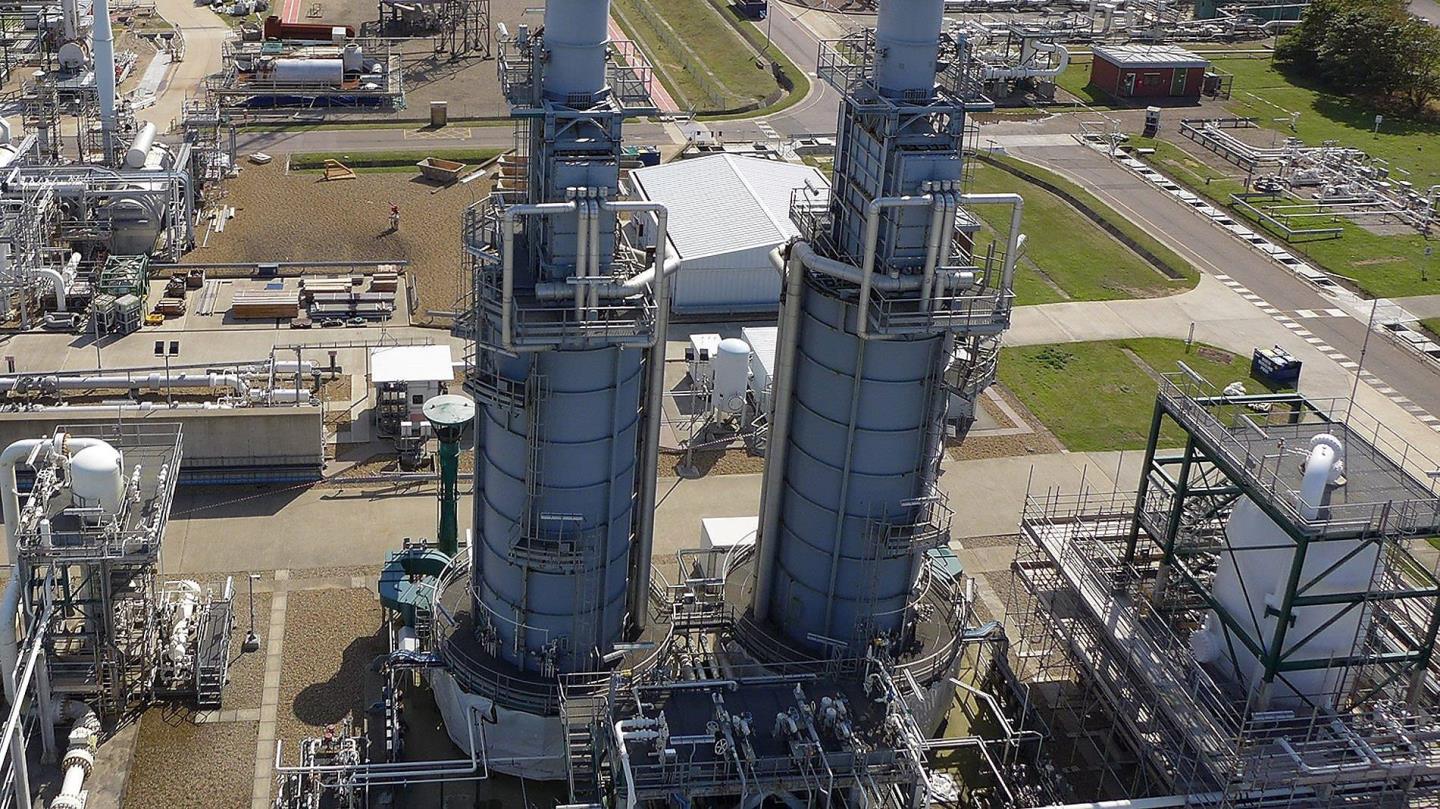 © Viaro Energy and Markus Distelrath/Pexels
© Viaro Energy and Markus Distelrath/Pexels North Sea operator Viaro Energy is continuing its focus on nuclear power after forming a strategic partnership with reactor technology developer Terrestrial Energy.
Viaro and Terrestrial Energy will work together to develop an “industry leading” project nuclear power project – potentially on its site at Bacton – working towards a final investment decision in 2030.
The American firm is developing a type of small modular reactor (SMR) technology known as an integral molten salt reactor (IMSR).
If the plan goes ahead, Viaro said the IMSR plant would create over 120 jobs once operational, with “many more during construction and in the plant supply chain”.
Viaro said it could deploy the nuclear reactor for a “broad range of potential industrial applications”, including decarbonising its offshore oil and gas assets.
Other potential uses for the SMR technology include powering AI data centres, a strategy tech firms like Microsoft, Google and Amazon are also pursuing.
As part of the partnership, Viaro and Terrestrial Energy will collaborate to capitalise on the “fast growing demand for nuclear’s clean firm electric power and industrial heat”.
IMSR nuclear plant
The two firms will evaluate siting, regulatory, macro-economic, and policy factors to confirm the viability of the project before identifying potential target sites.
The companies plan to form a joint venture for the delivery of the IMSR plant in the UK, with Viaro providing infrastructure and investment for the deployment.
Meanwhile, Terrestrial Energy will lead on the nuclear system development and procurement activities.
Viaro recently entered into a deal to acquire full ownership of Shell and ExxonMobil assets in the Southern North Sea.
Set to complete in 2025, the deal also includes the onshore Bacton Gas Processing Terminal.
The Bacton facility forms the centre of multiple offshore carbon capture and storage (CCS) projects in development.
Following its acquisition, Viaro highlighted the Bacton site’s potential for energy transition projects including hydrogen, CCS and the electrification of upstream assets.
Viaro and Terrestrial Energy
Viaro Energy chief executive Francesco Mazzagatti said the company selected Terrestrial Energy after a year of market research.
“We believe Terrestrial Energy’s IMSR technology is among the most competitive ones currently out there,” Mazzagatti said.
“The Terrestrial Energy team has successfully circumnavigated a lot of the production and supply chain challenges that other companies struggle with, such as fuel supply, and their experience in this sphere is impressive.
“Viaro has long stated its intentions to support the energy transition in a stable and strategic manner, and we continue to view safe nuclear energy as the most promising response to addressing climate change.”
Terrestrial Energy chief executive Simon Irish said if the project goes ahead it would “benchmark the capabilities of our IMSR plant and its potential for many other sites and applications”.
“Viaro and Terrestrial Energy share a strategic vision that a large expansion of nuclear energy supply is required to achieve energy security and net-zero emission goals and that small and modular power plants employing advanced Generation IV technologies, such as IMSR can lead this expansion,” Irish said.
Viaro nuclear strategy
The partnership with Terrestrial Energy comes after Viaro announced a separate deal in March with nuclear technology start up Newcleo.
The London-headquartered firm is developing lead fast-cooled (LFR) reactor technology, designed to run on reprocessed spent nuclear fuel created by existing reactors.
At the time, Viaro said had invested in the firm and would seek to deploy its 200 MWe LFR reactors at its UK sites.
However, a spokesperson for Viaro told Energy Voice that Newcleo has since “refocussed its efforts on Europe primarily”.
“Viaro has spent a year looking into the different SMR producers and identifying the one that is best aligned with the company’s strategic vision for the deployment of SMRs to decarbonise its oil and gas infrastructure,” the spokesperson said.
“Newcleo has refocussed its efforts on Europe primarily, while Terrestrial Energy has been actively looking for a UK partner, where most of Viaro’s assets are located.”
Meanwhile, in 2023 Terrestrial Energy signed a contract with Westinghouse subsidiary Springfields Fuels Ltd to deliver an IMSR pilot plant in England.
Viaro said the Springfields site in Preston has “extensive infrastructure available” to support the fuel supply for scaling up to support a fleet of IMSR plants in the 2030s.
What is an integral molten salt reactor?
According to the International Atomic Energy Agency (IAEA), molten salt reactors (MSRs) have benefits in higher efficiencies compared to traditional nuclear reactors.
First developed in the 1950s, the IAEA said the plants use lower operating pressures which can reduce the risk of a large break, enhancing safety.
Many countries, particularly China, are investing heavily in MSR research, and the UK government is similarly investing in developing SMR technology.
According to Terrestrial Energy, its IMSR reactor “improves upon earlier molten salt reactor designs by incorporating key innovations that create a reactor suitable for commercial industrial use and ready for near-term deployment”.



